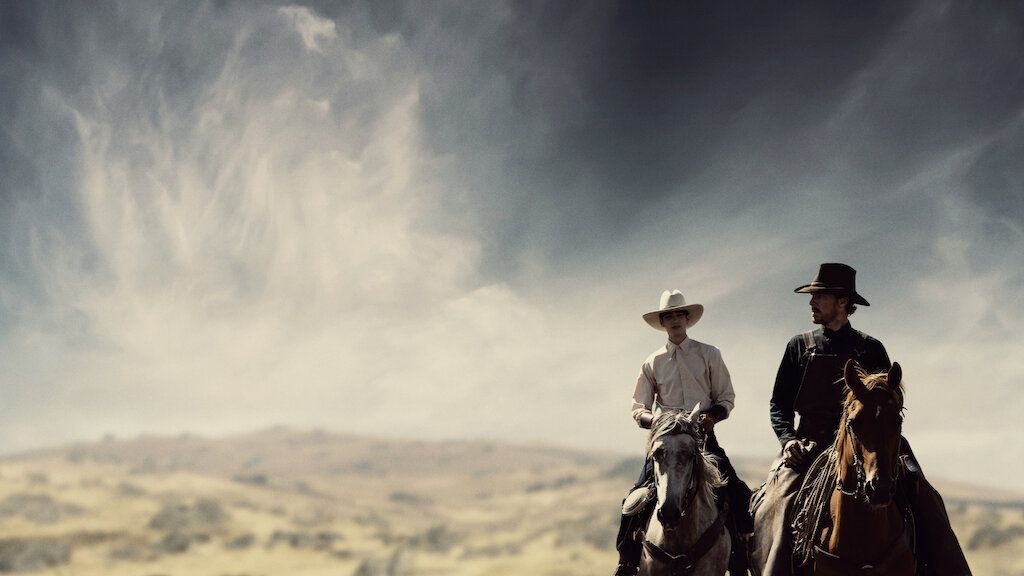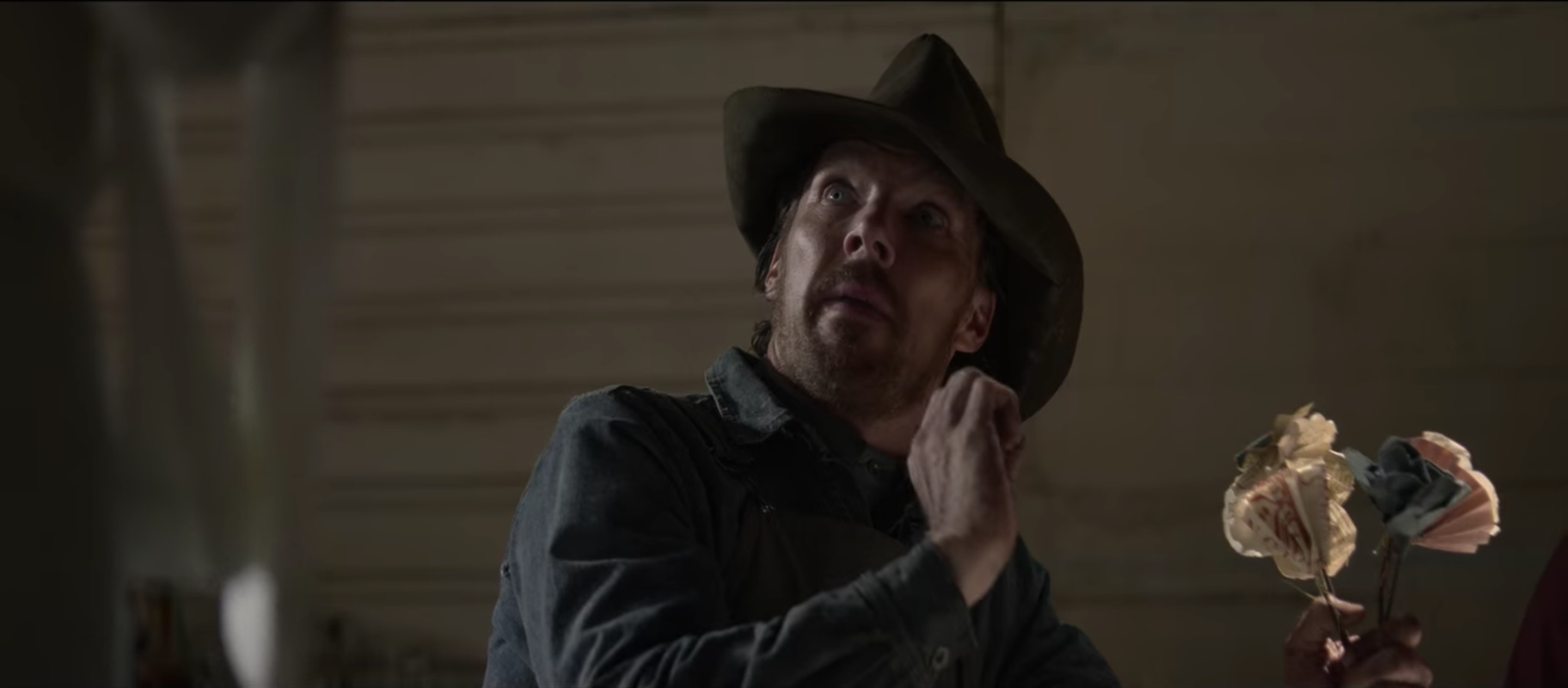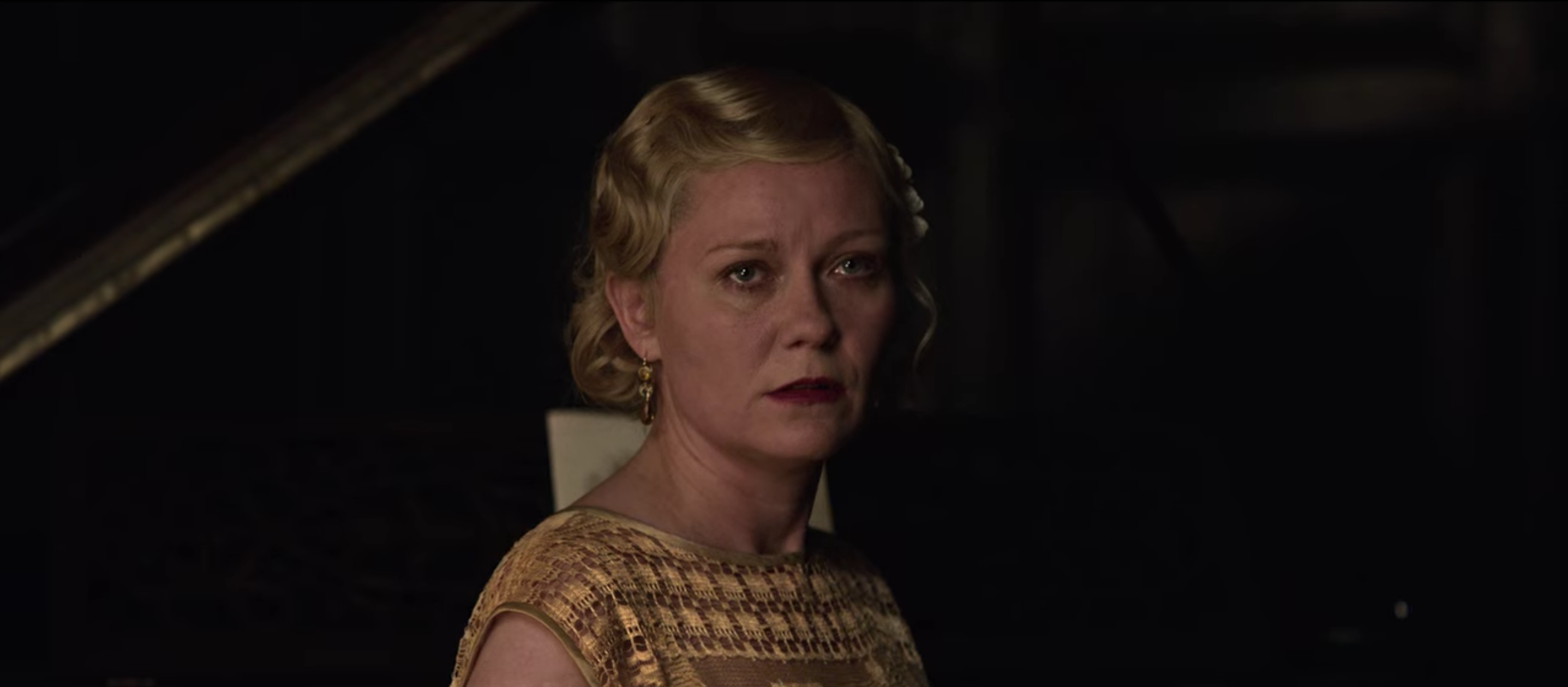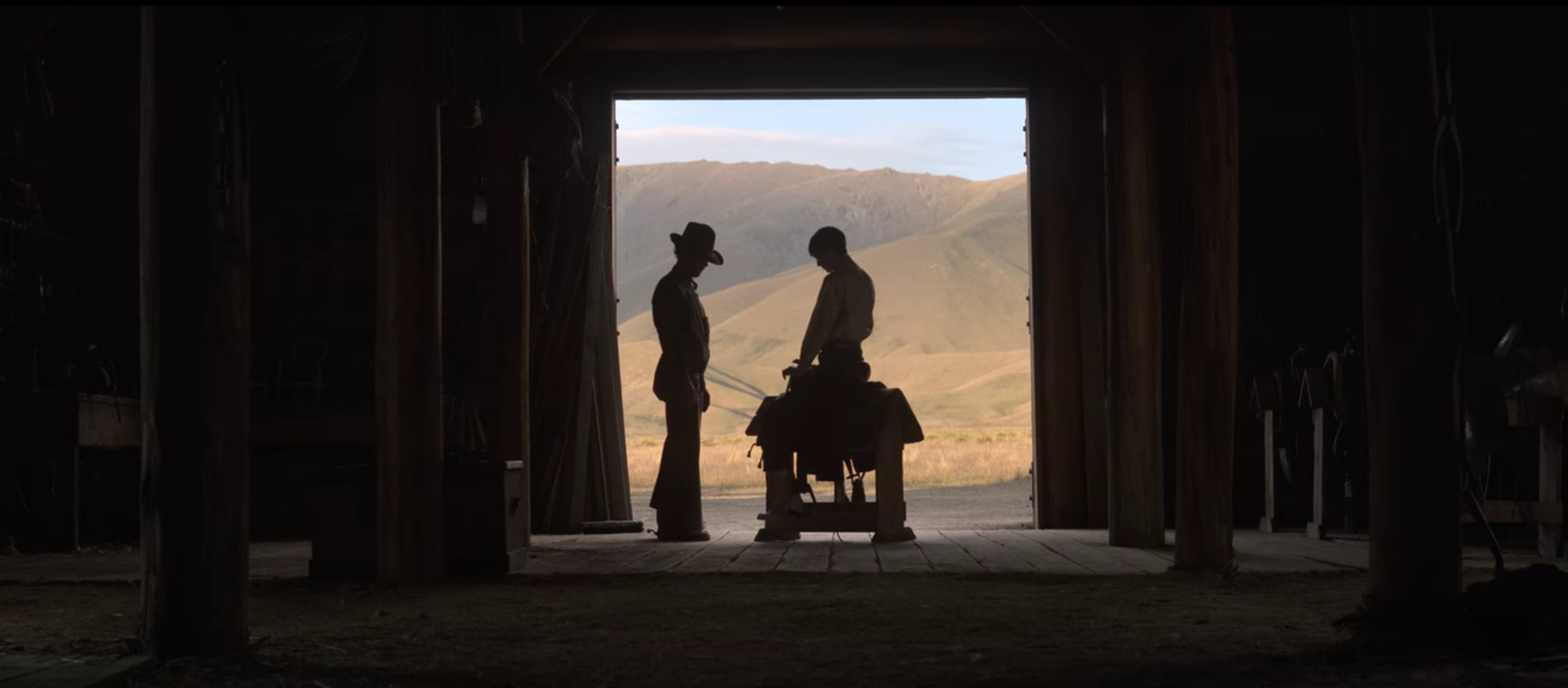When beginning a western film, most have come to expect fast-paced chases, heists, and gunfights as givens in the genre. Netflix’s recent slow burn, psychological thriller The Power of the Dog by Oscar-nominated director Jane Campion employs no such tactics, but still keeps the viewer at the edge of their seat for the entirety of its runtime. The film follows a wealthy family living in Montana in 1925, a time of great technological change and the beginning of the end of the cowboy era in the United States. It explores the members’ individual perspectives and their relationships to the world around them. Thematically, it focuses heavily on gender roles and sexual identity, in addition to their expression at a time of generational upheaval.
Times of great shifts in the social and technological framework of society are constant and often apparent, something that has become very familiar in America. The transitions depicted in the film are much like those we’ve seen in recent memory. Today, it is common for the citizenry to cry out for the old days. The opinion is so prevalent that "Make America Great Again" has even become a rallying cry in recent years. This focus on a mythic and bygone era in the face of change, as well as conforming to ever shifting societal standards, are explored with great relevance to the modern audience. As such, here's how The Power of the Dog uses the west to explore identity.
It is Set at a Time of Great Social and Technological Change
The film takes place in Montana in 1925. America is well into the industrial revolution at this time. Indoor plumbing, electricity, and even automobiles have become popular on the range. These advancements appear to spell the end for the ruffian cowboy era, much to the dismay of one of the film’s central characters, Phil Burbank (Benedict Cumberbatch). He and his brother, George (Jesse Plemons), had made a fortune alongside a mythic rider known as Bronco Henry ranching livestock in the heydays of the range.
As a result of his new wealth, George adopts a far more modern lifestyle. He wears fine clothing, bathes indoors, owns an automobile, and no longer engages in the physical work of the business. Phil resents his brother for turning his back on their old lifestyle, which he still cultivates. He feels this change disrespects Bronco Henry, a representation of his cherished past. He disrespects George constantly and continues to reject modernity.
Signifiers of this shift also manifest in Phil’s obnoxious treatment of Peter (Kodi Smit-McPhee), who grew up in this new era. When we first meet him, he is creating realistic representations of flowers using scrap paper, for decoration of the tables in his mother’s restaurant. Peter then performs a (for the time) traditionally womanly role of serving food and drink. Phil is upset by this display of changing times, as well as the peaceful atmosphere of the restaurant. To him, Peter looks like an easy target, and the establishment stands in opposition to what he believes. He’s sociable, friendly, and possesses a sort of dainty frame. Phil pounces on the young man immediately. He insults him verbally regarding his dress and proceeds to burn one of the paper roses. Almost immediately, the drastic change from the days of the old west and its relevancy to the story are presented.
It Uses Characters as Examples of Differing Identities and Roles
As is made obvious through the encounters mentioned above, Phil exudes toxic masculinity and has difficulty controlling his emotions. His anger reaches a boiling point when George marries Rose (Kirsten Dunst), the restaurant owner and Peter’s mother. We find out though several clues that Phil is in fact gay, and that much of his behavior is a massive overcompensation for this fact—something likely passed onto him by Bronco Henry. Additionally, he sees his brother get married, which in his mind further divides their relationship. Simultaneously, he is jealous of his brother's love and upset that Peter is rather openly gay when he was forced to hide who he is all this time. This pent-up emotional weight expels itself through the pointed insults and mind games Phil inflicts on the new family.
Peter does not verbally confirm his sexuality, but many of his actions seem to indicate his being gay. As a result, he suffers merciless abuse when he first arrives at Georges compound after his mother’s wedding. The other men hurl slurs and insults at the young man and play tricks on him. After several days of contending with these obstacles, Phil reaches out to Peter, and begins to take him under his wing. Now instead of being insulted, he is subject to Phil’s attempts to change him, much like the way that Bronco Henry changed Phil. Bronco Henry’s methods were successful in allowing Phil to conceal his sexuality and avoid ridicule but resulted in serious psychological damage. Further, the world Bronco Henry prepared Phil for is practically gone, and potentially irrelevant to Peter. Both men suffer in this instance, the question posed here seems to be, is it better to hide and suffer?
Rose also offers us a very interesting perspective on identity. While she ran her restaurant, she performed many traditionally feminine duties such as cooking, cleaning, waitressing, and hosting. When taking on the role in that context, she seemed to gain power and pride in her ability to provide a quality meal in a cleanly environment. When she marries George however, these duties are taken away. The house staff now cooks and cleans, and she has no patrons to speak with throughout the day. George barely sees her and practically uses her as a prop to impress politicians. She no longer has anything of substance to do for herself. Her “womanly duties” are artificial and often inconsequential. In the isolation of the mansion she turns to drink, and quickly spirals out of control. Though her and Phil are at odds for much of the film, she seems to grasp the plight of living a lie and the dangers of civility. Each of these characters are in contention with their true selves and the perceived notions of what “should” be.
It Analyzes These Identities and Roles Through Strenuous Social Situations
The film places these drastically different characters in the same isolated mansion, their interactions with each other and outsiders shed light on their feelings regarding their personal situation. We see how they understand themselves and their perceived place in the social order. It is often clear that what characters feel is not represented by their actions, largely as a result of their “duty” in a particular sexual or gender identity.
In the end, the film seems to portray that these categories are practically irrelevant, and that clinging to them steadfastly is no way to truly build an identity. Largely because in the next decade or so, what’s expected will probably be different anyway. Phil suffers because he has adopted his category even though it was incongruent with his feelings and now is in too deep too ever change, even if society came to allow it. Rose suffers just the same, she has traded her independence and effectiveness for another social obligation of the time. Peter suffers largely as a result of external forces because he does act as himself. The times have not caught up to him socially yet, but in the end, Peter appears to remain in touch with his identity and looks forward to his future.




